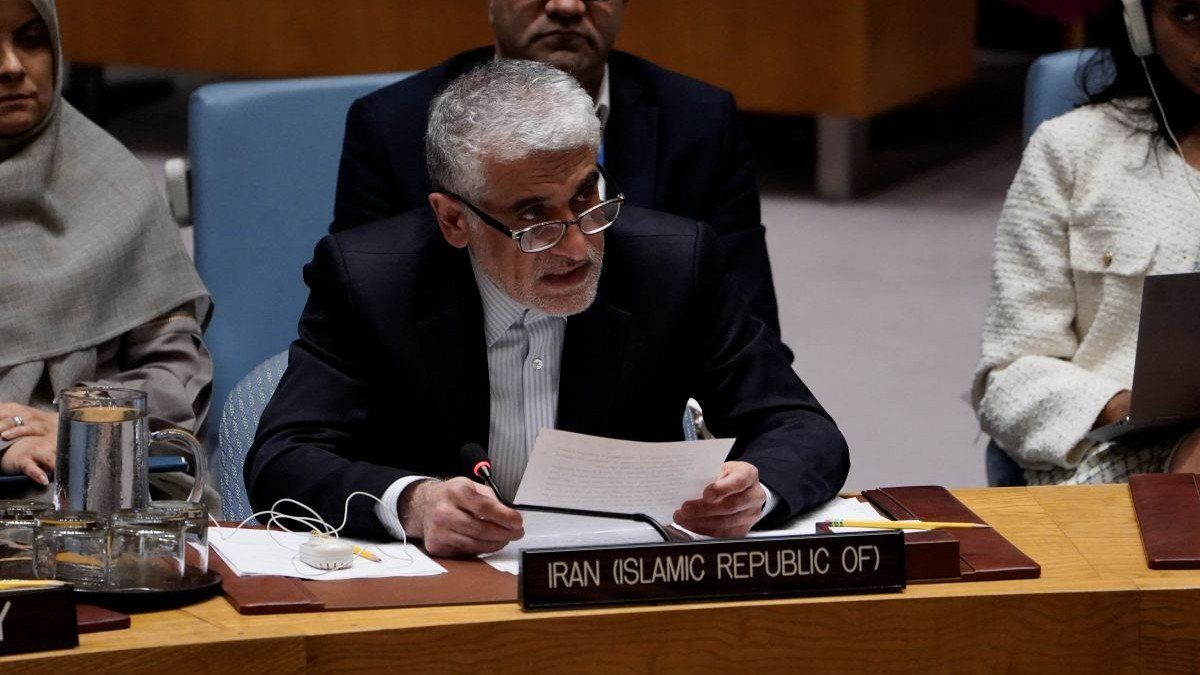It’s not clear yet how much the US attack on Iran's nuclear sites this weekend set back the Islamic Republic's ability to develop atomic weapons, but experts say the airstrikes almost certainly threw a bomb into something larger: the global nuclear non-proliferation regime.
Since 1970, the UN-backed Non-Proliferation Treaty, known as the NPT, has been the backbone of efforts to prevent more countries from developing nuclear weapons. Nearly 200 countries have signed it – including Iran. But with the stroke of a B-2, Trump may have wrecked it.
The treaty formally recognizes the nuclear arsenals of the five permanent members of the UN Security Council—China, France, Russia, the United Kingdom, and the US. All other countries promise not to develop those weapons – though they can use nuclear power for civilian uses. They agree to inspections from the UN’s International Atomic Energy Agency to ensure they aren’t secretly developing weapons, under threat of sanctions.
Since the treaty's signing, just four nations have acquired nuclear weapons. North Korea, India, and Pakistan, as well as Israel – which despite Tel Aviv’s denials is widely believed to have secretly weaponized its program in the 1960’s. None of these countries had signed the NPT, though, so the international condemnation of their development was, structurally, limited.
Overall, experts say, the treaty has been a success. “There are more countries today that had started nuclear weapons programs and decided to stop them than there are countries that have nuclear weapons,” says Matthew Bunn, professor of Energy, National Security, and Foreign Policy at the Harvard Kennedy School. “So our efforts to stop these programs succeed more often than they fail.”
However, US and Israel’s attacks on Iran disregarded the NPT mechanisms entirely, something that could raise doubts about the value of the treaty among other countries that are party to it.
“The US is seen by many countries, particularly in the Global South, as a bully that uses its military power outside of international law,” says Bunn. “That’s a problem for the US being able to negotiate what it wants in forums like the NPT.”
History suggests it may be worth having nukes. Nuclear weapons are seen as the ultimate deterrent to invasion or regime change, making them particularly sought after by countries at odds with global powers or aggressive neighbors.
Iraq and Libya gave up their nuclear weapons programs in the 1990s and early 2000s, while Ukraine surrendered its actual arsenal after the Soviet collapse. The first two were invaded by the US and NATO, while the third was invaded by Russia. Meanwhile, North Korea successfully built several bombs and has avoided regime change despite being on a war footing against the US-backed South for 75 years.
Since the attack, Iran has threatened to abandon the NPT, calling the attacks an “irreparable blow,” with lawmakers considering the possibility of pulling out on Sunday. If they leave the treaty, it raises the likelihood that more countries could follow suit, meaning the world could see more nuclear weapons development, with less international oversight.
“Countries that fear they may be on the pointy end of an American stick will be more motivated than before to seek nuclear weapons,” says Bunn.
But it's not just America’s enemies who want nukes. Many of Washington’s allies have long agreed to forego nuclear weapons because they had the protection of America’s own nuclear umbrella. But now, Bunn says, “American allies are beginning to wonder if they need their own nuclear weapons because of the US president who routinely questions whether the US should defend its allies.”
South Korea and Poland, which share borders with nuclear-armed North Korea and Russia respectively – are both asking that question. Poland’s Prime Minister Donald Tusk is “talking seriously” about obtaining nuclear capabilities and in South Korea, polls have found that as much as 70% of the population supports having its own arsenal.
“A number of countries are saying to themselves, we've rested our entire security policy on the notion that America will always be a reliable partner. And it looks like that may not be true. Do we need nuclear weapons of our own?” says Bunn.
